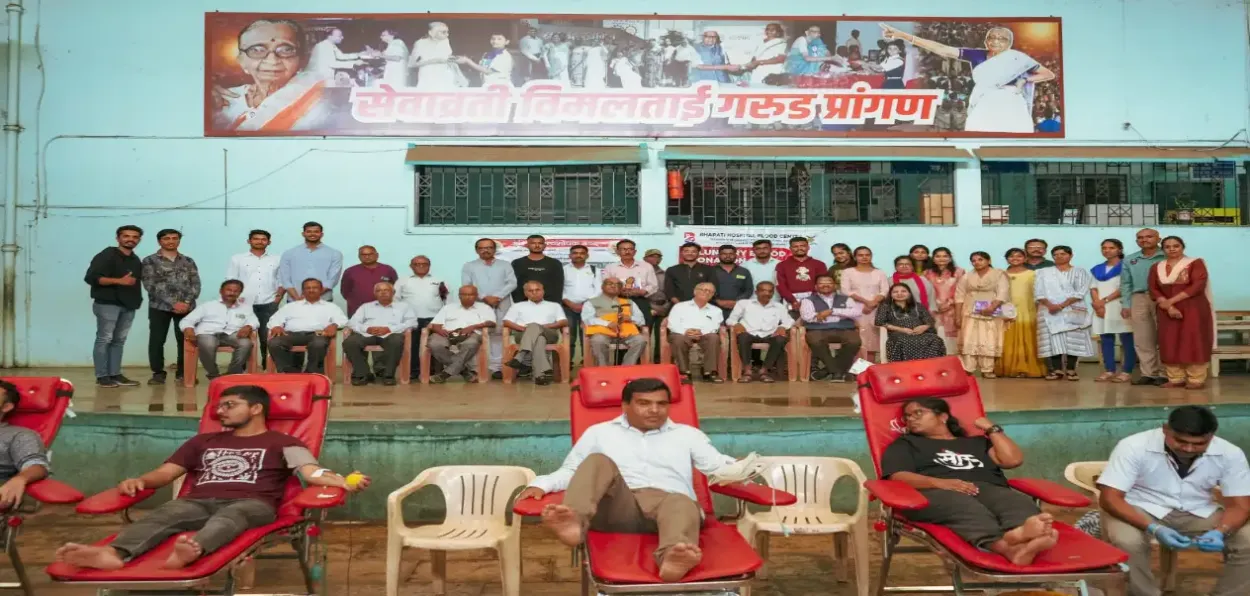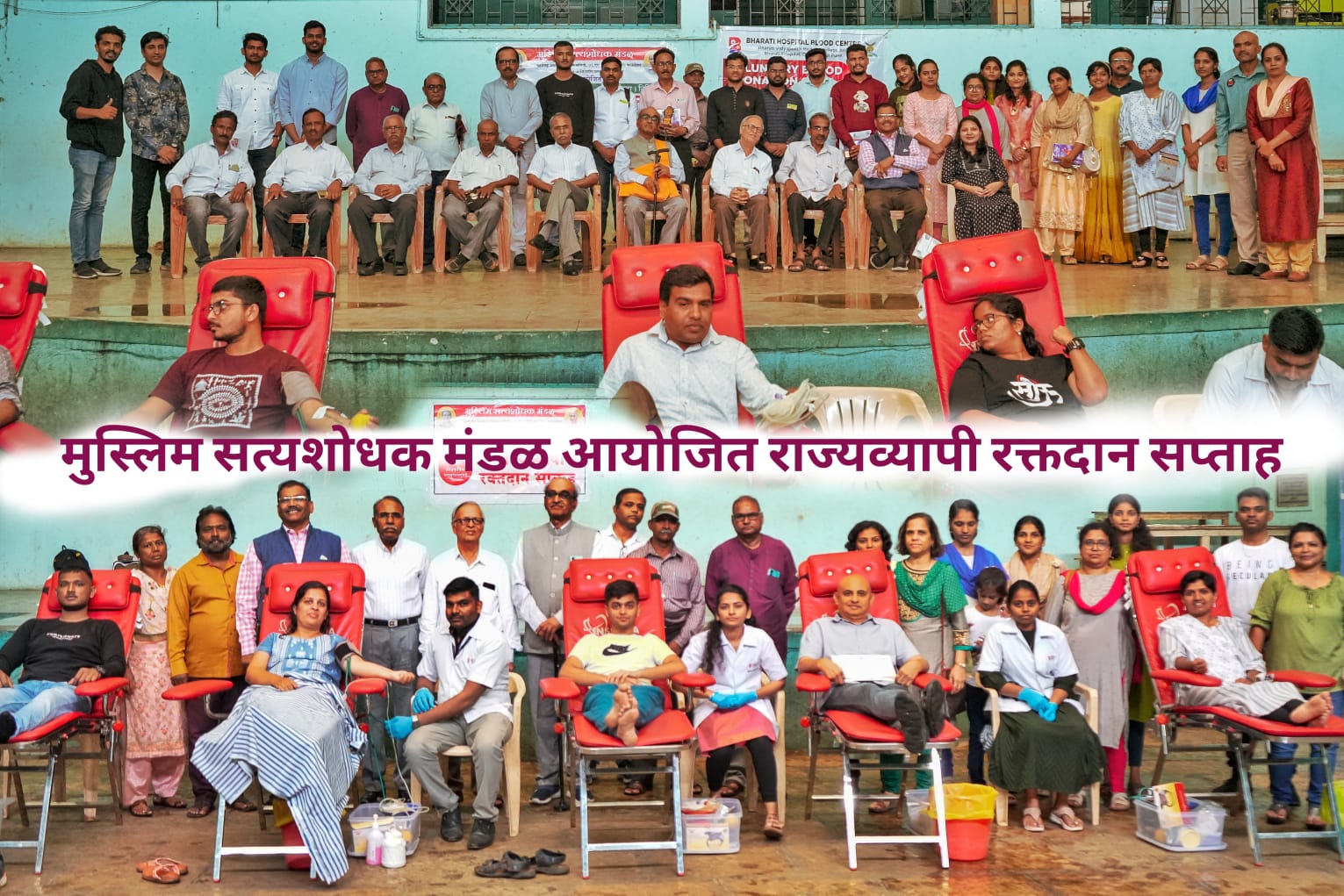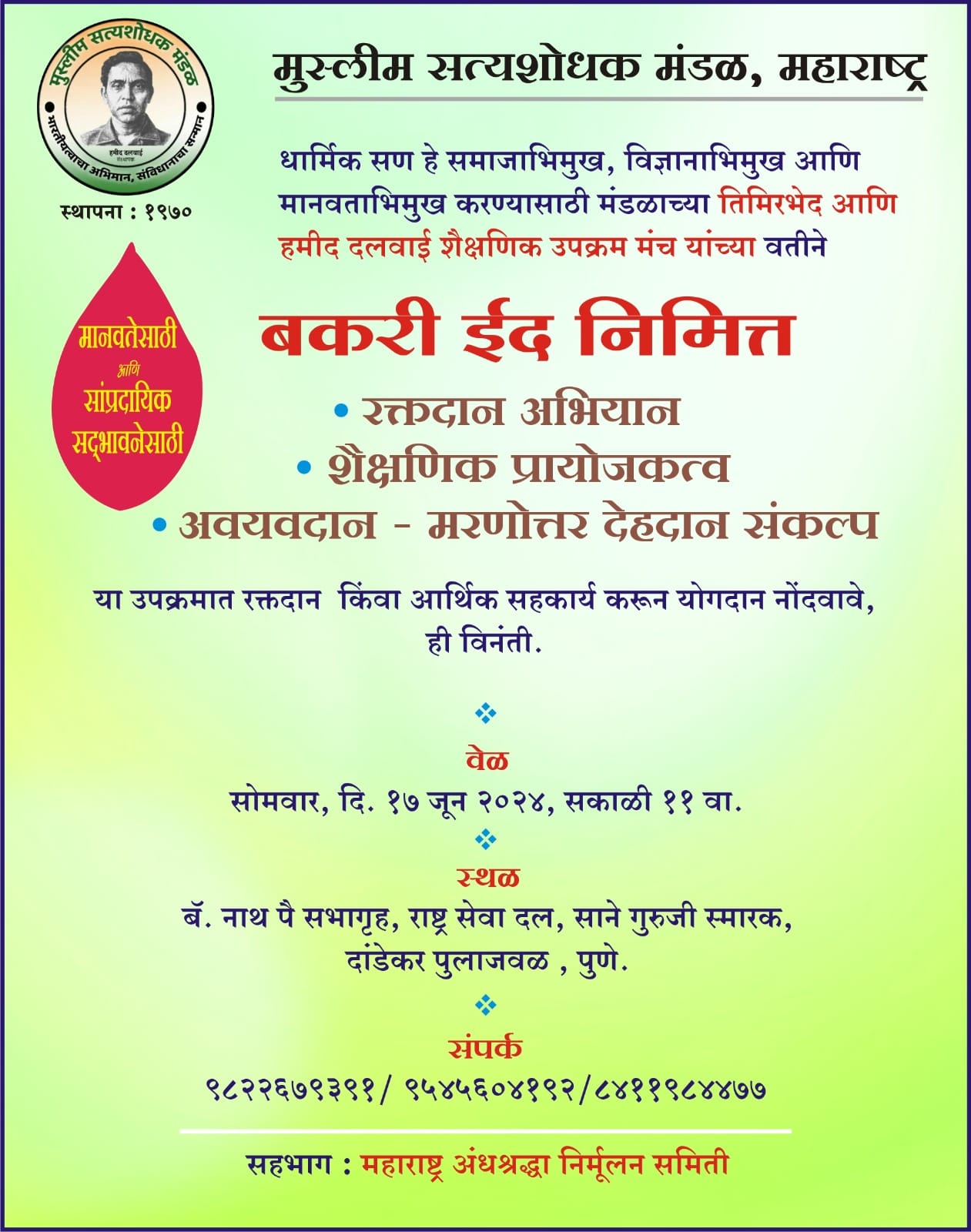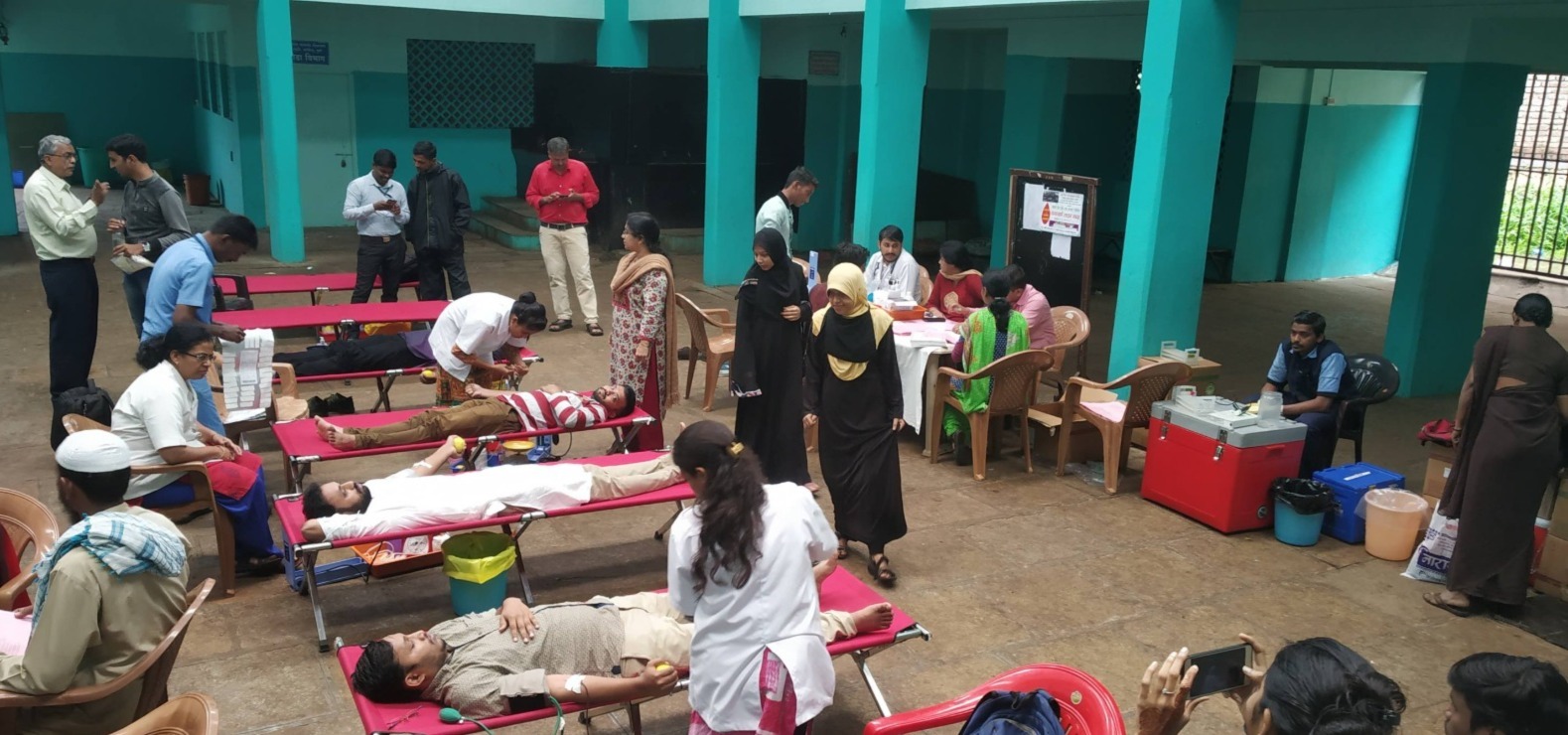
Pradya Shinde/Pune
While slaughtering an animal to embody Prophet Ibrahim’s willingness to sacrifice his son to follow the command of God, is common on Eid-ul-Zuha also called Bakrid in India many young Muslims are trying to give a new meaning to the concept of ‘sacrifice’ on the day
Another rationalist organization Andhvishwa Virodhi Samiti (ANIS), founded by Dr Narendra Dabholkar also joined hands for the blood donation camp.
Like every year, hundreds of Muslims and non-Muslims donate blood at the camps organized by these two organizations on the occasion of the biggest festival of Muslims.
 Blood donation camps on Eid
Blood donation camps on Eid
Dr Shamsuddin Tamboli, president of Muslim Satyashodhak Mandal, explained how blood donation can be a substitute for sacrificing an animal. "Bakrid is known as Qurbani ki Eid. Animal sacrifice is symbolic.”These camps are held across Maharashtra.
He explains: “The idea behind sacrificing an animal is to give up something precious, to sacrifice for a good cause, and to awaken social consciousness through it."
Talking about the concept of 'Blood Donation on Bakri Eid, he said, "We try to make religious festivals more social, science-based and humane. Therefore, we decided to celebrate Bakri Eid with the idea of blood donation, which is beyond caste and religion and promotes the spirit of humanity.
Under this, the Mandal has been running a blood donation drive for the last 15 years." He further said, "India has a culture of Hindu-Muslim harmony and it's our duty to maintain it.
Also, according to the Indian Constitution, every citizen must promote and maintain a scientific outlook, the organization believes it must also promote the scientific meaning of the rituals of all religions.
 Poster of Blood donation
Poster of Blood donation
“The initiative aims to enhance humanity by symbolically donating blood, which is beyond caste, religion, gender and region." Dr. Tamboli said, "Initially, this was organized only in Pune. However, due to the enthusiastic response it received, we decided to expand it across Maharashtra. Now, this campaign has become a state-wide initiative."
This year, another innovative campaign has been added to the blood donation on Bakrid. Dr Tamboli said, "From this year, along with the blood donation drive, the Muslim Satyashodhak Mandal has also pledged to promote organ donation and posthumous body donation and create awareness about it.”
The Mandal has appealed for financial assistance to promote modern education." Every year, various organizations participate in this initiative. Andhvishwas Virodhi Samiti (ANIS), Rashtra Seva Dal, some progressive organizations of the Muslim community and religious organizations give significant support to this initiative,” Dr. Tamboli said,
"These groups organize programs in places where our workers are not present. This initiative significantly helps in creating a sense of brotherhood, harmony, and peace in the society."
The significant participation of Muslims in the 'Blood Donation on Bakri Eid initiative is an important aspect. Muslims from across the state participate in this initiative.
This year, many Muslim youths will also participate, and their responses are noteworthy. Altaf Hussain Nabab, secretary of the Mandal, said, "Society is greatly influenced by traditions and culture. Often, these lead to disputes.”
Hindu-Muslim conflicts in India have hindered the progress of both communities and consequently, India. The practice of sacrifice during Bakrid is often targeted.
 Blood donation camp
Blood donation camp
“On the other hand, the Muslim community, as Indian citizens, should adopt the Quran as well as modern principles like scientific thinking in their personal lives. This is an innovative initiative by the Mandal to try in that direction."
When asked about the motivation behind donating blood on Bakrid and the message they want to convey through this, Benazir Qazi, a volunteer said, "'Sacrifice' is important among the human values propounded by religion. As a symbol of this sacrifice and because blood donation is the highest form of charity, I participated in this initiative."
Another youth Amar Tamboli said, "Everyone values their life and they should do so. There is no reason to disagree with this. It may not be possible for us to sacrifice our lives, but at least from a humanitarian point of view, we can donate blood and contribute to saving someone's life.”
“The mortality rate due to blood shortage in the country is 15 to 20 percent. Only 0.6 percent of people in India donate blood. Therefore, I aim to participate in sacrifice by donating blood on Bakrid." He said, "Society and its people often follow centuries-old traditions blindly.
“This initiative being carried out by Muslim Satyashodhak Mandal on the occasion of Bakrid for the last 15 years is a humanitarian choice and social responsibility. Hence, I too donate blood on Bakrid every year."
This year, the 'Blood Donation on Bakrid' initiative that started on 17 across Maharashtra will continue for two more days after the Eid.
The Muslim Satyashodhak Mandal Muslim Satyashodhak Mandal was founded on March 22, 1970 in Pune by Marathi litterateur and social reformer Hamid Dalwai. Inspired by Mahatma Phule's Satyashodhak Samaj, reformist Muslims came together to start this movement in the seventies.
It was founded to bring religious, social, and educational reforms within the Muslim community. It is the first organization to raise its voice for the constitutional rights of Indian Muslim women.
ALSO READ: Kashmir: Love flowed as 100 Hindus came to native village after 35 years
Mandal has been fighting against oral triple talaq for the last fifty years, even after the Supreme Court verdict in 2017, it did not go unnoticed. This movement is an important movement committed to Muslim social reform in Maharashtra, India, and even globally.
